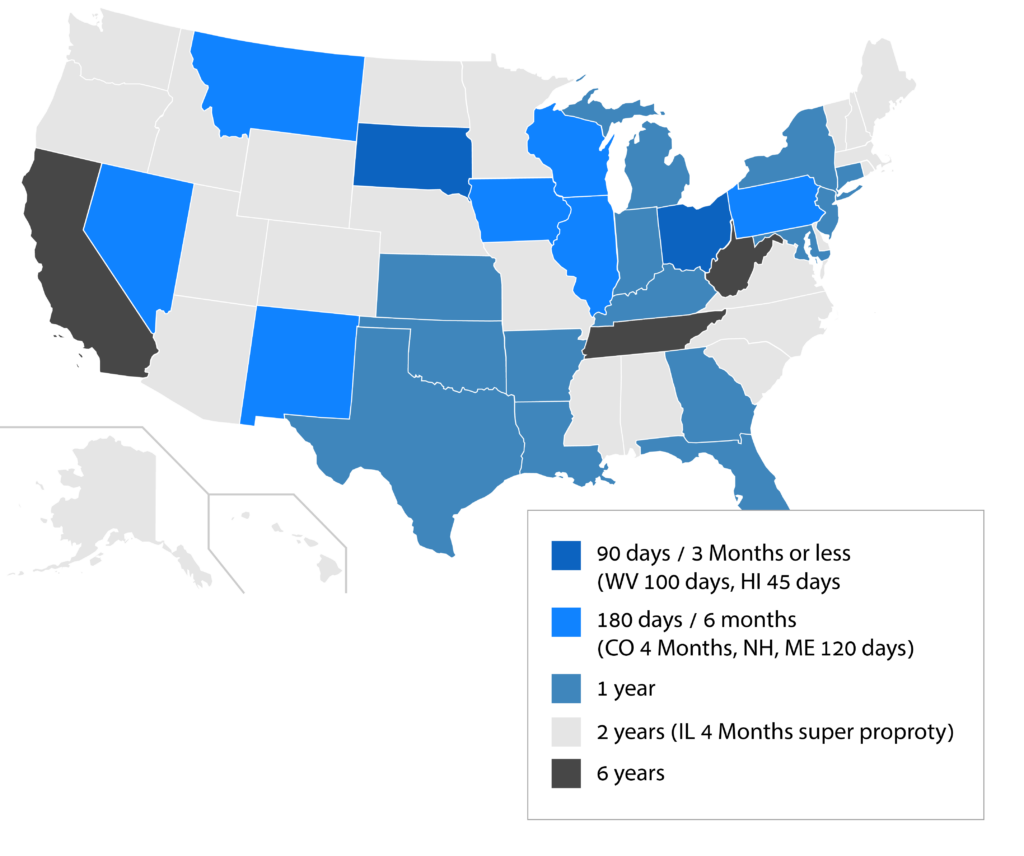
Source: Created from data from the Census Bureau’s Business Dynamics Statistics
What is a Mechanics Lien?
Will Filing a Mechanics Lien Work?

“A correctly filed lien can freeze project funds, stop the property from being sold, and cause problems for other parties who have an interest in seeing you paid.”
The process of filing a mechanics lien
The process for filing a mechanics lien varies by state, so it’s important to know the guidelines for the specific place you’re working. Many states require you to notify the property owner and other parties of the unpaid debt before you can begin the filing process. This notification varies depending on the type of property and type of work performed.
Once you’ve met any notification requirements, you’ll need to file the mechanics lien. Make sure to check with an attorney or with the local county office to make sure you include all the correct details, meet all the formatting requirements, and attach the supporting documentation. Include the filing fee and take all your paperwork to the county Registrar of Deeds for filing.
You will also need to serve the lien so that the property owner and any other party who was notified gets a copy of the documents you filed in the lien. Different states will have different rules on how to serve the lien, so be sure you’re clear on whether the lien can be served by mail or if it needs to be served in person. Because property with a lien on it cannot be easily sold until the lien is satisfied (paid in full), owners have a great incentive to pay their bills.
A mechanics lien is not valid forever, so you need to keep track of when the lien will expire and make sure you take enforcement action before that date. One option for a mechanics lien claimant is to sue to have the real estate sold at auction and recover the debt from the proceeds.
Mechanics Lien Deadline Heat Map

WHY CHOOSE NLB?
WE GET YOU PAID!
Learn More About Mechanics Lien Compliance by State
Gain Access to Our Nationwide Mechanics Lien Construction Lawyers Network
Stay Updated On Legal Compliance Changes in Your State




